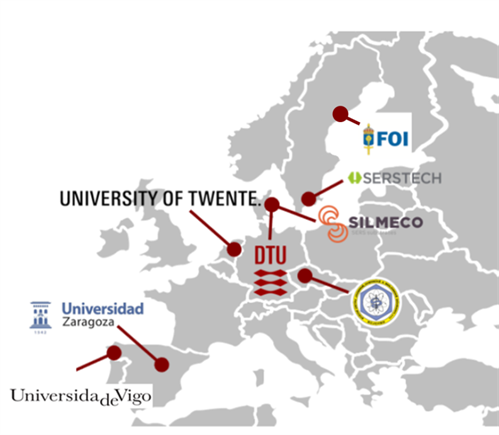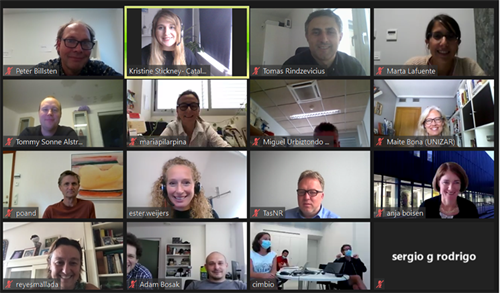SERSing Kick-off Meeting
On September 9th, 2020, a virtual kick-off meeting was held for a recently funded European Union Horizon 2020 project titled SERSing: ‘Advanced Surface Enhanced Raman Spectroscopy (SERS) based technologies for gas and liquids sensING in the area of chemical protection.’ 
This 3.5-year project falls under the H2020 SEC Program to fund projects with new ideas for protecting freedom and security of Europe and its citizens. SERSing is part of the topic of chemical, biological, radiological, and nuclear (CBRN) cluster part B, a part of the ENCIRCLE network.
The goal of SERSing is to enable fast detection and identification of gas or liquid chemical hazards at low concentrations in many different environments. The geo-located acquired data will be submitted to an on-line learning platform and processed, transmitting threats and hazard data to authorized personnel and generating alerts on the incident scene in real time.
The innovative microdevices for detection and identification are integrated in low weight hand-held equipment customized to overcome the common operational limitations of first responders. This device will also be compatible with first responder protective equipment and respirators, easy to use and maintain and affordable. The robust, reliable, ultrasensitive lab on chips (LoCs) for on-site detection of chemical threats in gas and liquids are based on Surface Enhanced Raman Spectroscopy (SERS). The customized Raman spectrometer will combine geo-location and communication technologies specifically adapted for the rapid screening of the environment. This small device could also be mounted on robotic units to inform about possible hazardous chemical agents before sending personnel into a contaminated scene.
This device may also be utilized in future forensics tools used: i) “on scene” to determine the chemical nature of a sample in order to collect it for further laboratory analysis or dismiss it; or ii) “in a laboratory environment” for profiling chemical agents released to better understand the hazards at hand.
The project is coordinated by Dr. Tomas Rindzevicius of Silmeco, in collaboration with 8 partners across Spain, The Netherlands, Denmark, Sweden, and the Czech Republic. Partners include: Technical University of Denmark, University of Zaragoza, University of Vigo, University of Twente, Serstech AB, Swedish Defence Research Agency (FOI), The National Institute for Nuclear, Chemical and Biological Protection (SÚJCHBO).

 This project is funded by Horizon 2020 Framework Programme of the European Union under grant agreement number 883390.
This project is funded by Horizon 2020 Framework Programme of the European Union under grant agreement number 883390.